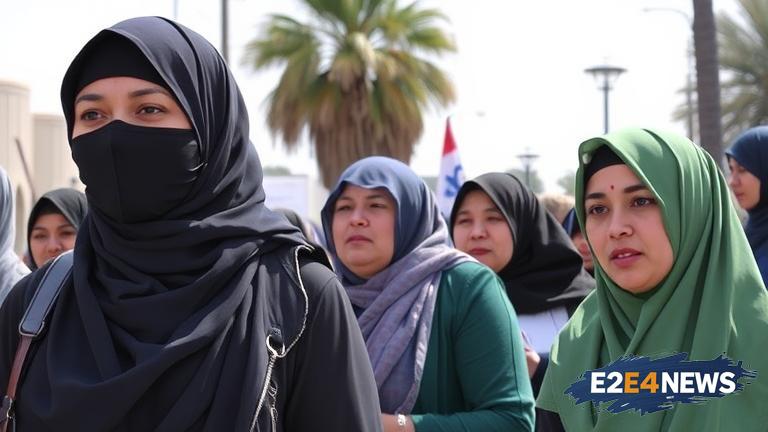A recent lawsuit has been filed by two Muslim protesters from the University of California, Irvine, against the Orange County Sheriff’s Department. The lawsuit alleges that the protesters’ hijabs were forcibly removed by sheriff’s deputies during a protest. The incident occurred in 2022, when the protesters were arrested and taken into custody. The plaintiffs claim that the removal of their hijabs was a violation of their religious rights and an act of humiliation. The lawsuit also alleges that the sheriff’s department has a history of mistreating Muslim protesters and ignoring their religious needs. The protesters were part of a group demonstrating against a speech by a conservative speaker on campus. The speech was met with opposition from some students, who argued that it was hateful and discriminatory. The protesters were arrested and charged with various offenses, including disorderly conduct and resisting arrest. The lawsuit claims that the sheriff’s deputies used excessive force and targeted the Muslim protesters because of their religion. The plaintiffs are seeking damages and a change in the sheriff’s department’s policies regarding the treatment of Muslim protesters. The lawsuit has sparked outrage and concern among Muslim communities and civil rights groups, who argue that the incident is part of a larger pattern of Islamophobia and discrimination. The University of California, Irvine, has also faced criticism for its handling of the incident and its response to the protesters’ concerns. The lawsuit is ongoing, and the sheriff’s department has not commented on the allegations. The incident has highlighted the need for greater awareness and understanding of Muslim rights and the importance of protecting religious freedom. The protesters’ lawsuit is seen as a significant step towards addressing the issues of Islamophobia and discrimination in law enforcement. The case is being closely watched by civil rights groups and Muslim communities, who are hoping for a positive outcome. The lawsuit has also sparked a wider conversation about the need for greater diversity and inclusion in law enforcement and the importance of respecting religious differences.
